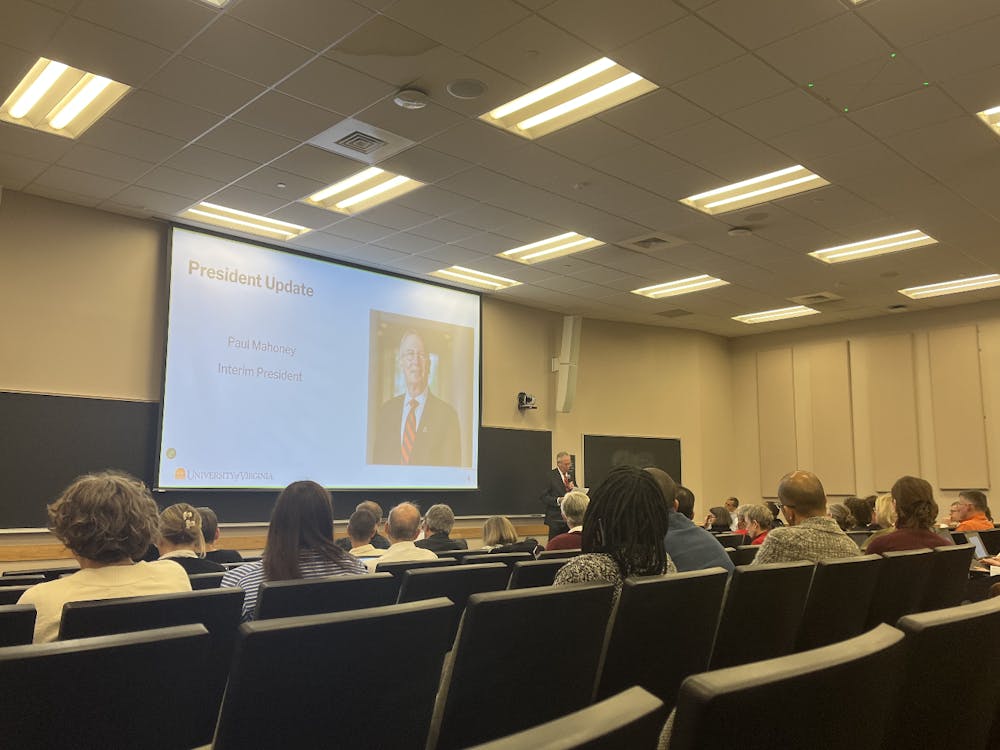University Judiciary Committee members decided Sunday by a vote of 11 to 7 against placing a referendum on the spring ballot that would increase the number of UJC College representatives from three to five.
Since discussion about such a proposed increase began last fall, some UJC members have noted that because the College is by far the largest school within the University, three College students in UJC do not properly represent the school. Members also took into account that University students voted to increase the number of College representatives in the Honor Committee from three to five during the spring 2007 elections.
“I believe the college is the largest school and needs to be more represented,” said Grayson Lambert, UJC Vice Chair for Trials and a fourth-year College student.
Lambert, who voted in favor of the amendment, said he thought it failed because of concerns raised about how to keep UJC representatives proportional to their schools but also equal within UJC.
Eric Schneiter, UJC Vice Chair for Sanctions and third-year Engineering student, said, “I voted nay because I don’t think increasing the number from three to five would be an improvement.”
Schneiter added that increasing the number to five would not proportionally represent the College. For each school to be properly represented, the Education School “would have to have like one [representative], and the College would have to have like 19,” Schneiter said.
In addition, Lambert felt that many UJC representatives voted against the amendment because they represent smaller schools, and they did not want to risk giving up their votes and increasing those of the College.
Schneiter also noted that increasing the number of College representatives could lead to an Executive Committee in which all voting members could be from the College. The chair, vice chair for trials, vice chair for sanctions and vice chair for first years make up UJC’s Executive Committee.
Currently, two of the four voting members on the Executive Committee are College representatives. Schneiter stressed that increasing the number of College representatives would increase the chances of having three or even all four members serve as the Executive Committee’s voting members, which would “cause problems of how we adjudicated cases.”
Lambert disagreed, however, arguing that an increase in representatives would help lessen UJC’s case load by increasing the number of judges. UJC will soon add two more representatives to its committee from the Batten School of Leadership and Public Policy that will add to the pool of potential judges, Lambert said. He noted, however, that two more from the College would be of even greater help.
“From the perspective of vice chair of trials, four more judges with four or five trials a week would be wonderful for us [and would make it] immensely easier to schedule trials,” Lambert said.
UJC Chair Merriam Mikhail, a fourth-year College student, withheld her own vote. This action is typical of the chair.
“I have no idea how I would have voted,” Mikhail said, noting that many students who have gone through the UJC system have expressed concern that their trial panels were composed primarily of graduate students who were “out of touch” with undergraduate life.
“Were this amendment to pass, it would help alleviate that situation by having more representatives” for trial panels and would increase the number of undergraduate students involved in the process, Mikhail said.
Still, Mikhail acknowledged concerns with the amendment.
“I feel that five is an arbitrary number,” Mikhail said, noting that although the amendment would help make College representation in UJC more proportional to the number of constituents in the College, it would not be perfect.
There are no “mathematical equations that would make it more exactly proportional,” Mikhail said, and it still “wouldn’t by any means be equal or fair.”
If UJC had voted in favor of placing the referendum on the spring ballot, the entire University, not just the College, would have voted on the amendment, Mikhail said.
Third-year Engineering student Tim Hayes said he agreed that the College should have more representatives, because of the school’s size.
“As an E-school student, I would vote for a referendum increasing College representatives because in the current situation, it seems that College students are underrepresented in the UJC,” Hayes said.
Fourth-year College student Kai Chang, however, said he was not concerned about College representation in UJC and “probably wouldn’t vote” for the amendment had it made it to the ballot.
Increasing the number of College representatives from three to five has been a recurring concern for UJC.
“The issue came up several years ago,” Lambert said. “I expect it to come up several years down the road.”
Mikhail noted that there seemed to be more initial support for the increase after the Issues Subcommittee first proposed the referenda to the entire committee in the fall.
“We urged representatives to return to their schools and figure out what each school would want with their vote,” Mikhail said, noting that this urging may have caused the change in votes this semester.
In the end, “all of us agreed that the amendment was problematic” but no solution was found, Mikhail said, adding that she looks “toward a future committee to find that answer.”






